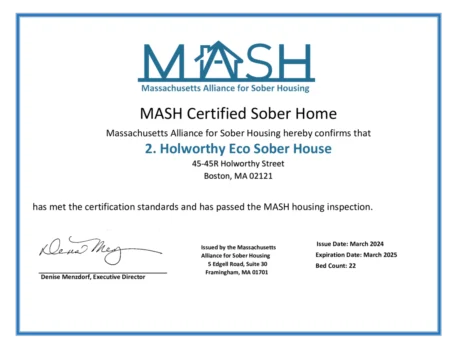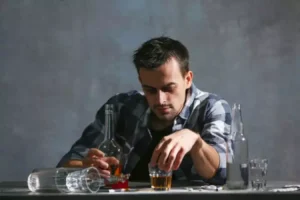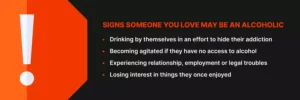
Gillian Tietz is the host of the Sober Powered podcast and recently left her career as a biochemist to create Sober Powered Media, LLC. When she quit drinking in 2019, she dedicated herself to learning about alcohol’s influence on the brain and how it can cause addiction. Today, she educates and empowers others to assess their relationship with alcohol. Gill is the owner of the Sober Powered Media Podcast Network, which is the first network of top sober podcasts. Navigating alcohol cravings is certainly challenging, but remember, there’s strength in numbers.
- Some people may experience alcohol cravings when they stop drinking.
- It also provides worksheets to help you uncover the nature of your urges to drink and to make a plan for handling them.
- In addition, some new, non-addictive medications can reduce the desire to drink or lessen the rewarding effect of drinking so it is easier to stop.
- In particular, she’s committed to helping decrease stigma around mental health issues.
- For others, regular follow-up with their primary doctor should be enough and can work, Holt says.
Mental Health Services
Sign up for free and stay up to date on research advancements, health tips, current health topics, and expertise on managing health. Before starting any complementary treatment, be sure to discuss it with a doctor to make sure it’s safe for you. People who are still drinking are not prescribed acamprosate. If certain environments, scenarios and places tempt you to drink, the simplest and most effective approach may be to avoid them, at least temporarily. If you’ve ever tried to break any habit, you probably know it’s often easier said than done. Of course, addressing your triggers at the source can also go a long way toward helping you make lasting changes.

Other Medications
For most people, alcohol withdrawal symptoms will begin to subside after 72 hours. If you are still experiencing withdrawal symptoms after three days, talk to your healthcare provider. If stress or other difficult emotions are triggers for your cravings, it’s a good idea to learn some stress-busting or anxiety-relieving how to stop alcohol cravings techniques to help you cope with these emotions. These can include activities like mindfulness, meditation or yoga. Your treatment might include medications to help you stop craving alcohol.12 Prescriptions like acamprosate, disulfiram, and naltrexone can decrease the urge to drink.
Medication to Help with Alcohol Cravings
Her fields of interest include Japanese translation, cooking, natural sciences, sex positivity, and mental health, along with books, books, and more books. She lives in Washington with her son and a lovably recalcitrant cat. Alcohol cravings can be difficult to manage alone, and there’s no shame in needing a little extra support. Understanding the three distinct components of your habit loop can help you come up with more specific strategies to overcome cravings when they pop up. Coping tips can absolutely offer short-term solutions when you’re trying to cut back on alcohol. That said, permanently changing your relationship with alcohol may require a more in-depth approach.
- On general principle, you don’t have to reason it out yet again.
- But there are ways to cope with them and reduce your risk of relapse.
- Feeling at your best physically can boost resilience and emotional strength, equipping you to weather challenges that trigger the desire to drink.

Including a variety of foods from different food groups ensures that you obtain a wide range of nutrients necessary for optimal brain function and overall well-being. For example, high-protein foods such as lean meats, fish, tofu, and legumes can help stabilize blood sugar levels and provide the amino acids necessary for neurotransmitter production. These neurotransmitters, like serotonin and dopamine, play a crucial role in regulating mood and cravings. Researchers haven’t compared medication alone to psychotherapy alone, and results are mixed as to whether combining the two provides greater benefits than either one alone. Some studies suggest that simply getting help — whether through medication, counseling, or both — is what matters for successful management of this addiction. Like naltrexone, acamprosate seems to work best for people who are able to stop drinking before starting treatment.
Plan to handle urges to drink.

Urges tend to run out of steam after minutes, setting a timer for a ½ hour can help to ride out the urge. Think of cravings as sprinters, they are intense but run out of steam pretty quickly. You can prevent alcohol use disorder by limiting your alcohol intake.
Professional Support and Treatment

Then, your therapist will teach you specific techniques to use when cravings arise. Individual responses may vary, but the overarching evidence shows that it provides tangible benefits for individuals battling alcohol dependency. By altering cognitive processes linked to alcohol consumption, CBT can create https://ecosoberhouse.com/ a beneficial cycle, reducing cravings and facilitating healthier choices. Remember, these foods are not miracle workers and they can’t instantly eradicate cravings. But, incorporating them into your diet can help you manage your urges more effectively, as part of a comprehensive recovery strategy.
Trying to ignore alcohol cravings is not the best way to manage them. It is better to accept them as normal and actively treat them through a variety of methods, including possibly taking medication. Ashwagandha is an herbal supplement used in traditional Indian Ayurvedic medicine. It has long been used to prevent alcohol cravings, improve immune function, and reduce stress. Disulfiram is a pill that causes unpleasant side effects when combined with alcohol.
Free Healthbeat Signup
For serious alcohol use disorder, you may need a stay at a residential treatment facility. Most residential treatment programs include individual and group therapy, support groups, educational lectures, family involvement, and activity therapy. For those of us who have grown comfortable in our recoveries, the unexpected arrival of alcohol cravings can be really disorienting. And all of a sudden, no matter how long we’ve been in recovery, we think we might go about drinking safely.
If you’re struggling with addiction, we understand the challenges you’re facing and we’re here to help. You may also consider joining an online support group to help you feel less alone. Consider writing them down and keeping notes on hand, so you have a physical reminder to look at when you need it to help motivate you to stay the course. Letting others know about your choice to stop drinking may help motivate you to stick with your decision. Naming something, saying it out loud, and sharing it with someone else can take the power away.
